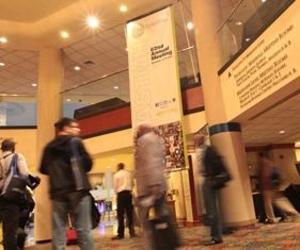Global health annual meeting has one of highest ever attendance records
6 December 2013

Approximately 3,700 delegates from almost 100 countries attended the 62nd annual meeting of the American Society of Tropical Medicine and Hygiene (ASTMH) in Washington, DC.
The conference had almost 2,000 abstract submissions, 98 symposia and more than 1,500 posters, organisers reported. The hub for tropical medicine and global health interests took place between 13 and 17 November 2013.
The keynote speech was addressed by Professor Peter Piot, director of the London School of Hygiene & Tropical Medicine. Piot highlighted that the world needs to be more equitable in order to embrace global health, especially as the power remains in the hands of wealthy nations when epidemics affect the poor ones.
At a global health advocacy symposium, ASTMH executive director Karen Goraleski recommended that scientists give more attention to policy. “Working in the field isn’t good enough. You have to talk about your work”, she said.
Evolution and risks of vivax malaria in the spotlight
One of the malaria species - Plasmodium vivax - is now a major focus of disease control. New research shows that it is putting tens of millions of people in Africa at risk, adding to about three billion people at risk in Asia and South America. At the meeting, Professor Peter Zimmerman from the Case Western Reserve School of Medicine presented the latest research on the rapid evolution of vivax malaria.
Several media covered the presentation of the study results globally, including Agence France Presse. Promising tests for a potential new hookworm treatment and the spread of dengue in Florida also generated interest.
ACT Consortium research at the ASTMH meeting 2013
You can read the full list of ACT Consortium symposia, scientific sessions and poster sessions at the ASTMH meeting. The following research projects presented results:
- Access and quality of malaria diagnosis and treatment in South-East Asia
- Giving ACT drugs to patients with positive result in malaria rapid diagnostic test
- Identifying non-malaria illnesses that cause fever
- The PRIME trial: Improving health centres to reduce childhood malaria in Uganda
- Introducing rapid diagnostic tests in drug shops to improve the targeting of malaria treatment
- Use of rapid diagnostic tests to improve malaria treatment in the community in Uganda
- IMPACT2: Evaluating policies in Tanzania to improve malaria diagnosis and treatment

